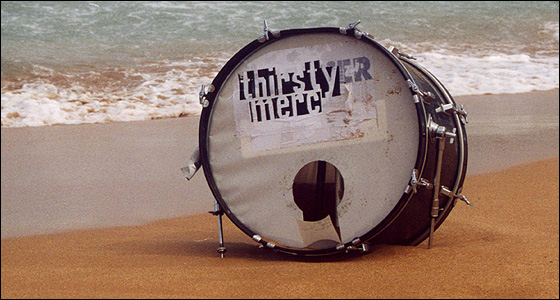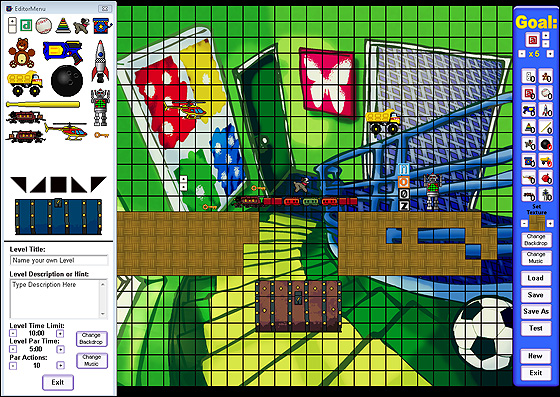Observations from the Shanghai Subway
November 10th, 2008

After being here for maybe two months I’ve realized that I haven’t actually said much about the gaming scene in China. I’ve been to a few arcades, shuffled through pirated and import markets, observed gaming on the subway and made friends who all play games in some form or another. I also have a room mate who owns a Japanese Sega Saturn, although, he is creepy, so I probably won’t explore that avenue!
The only facet that I feel well grounded in is gaming on the Shanghai subway, which is much more prominent than you might first assume. Inspired by Stephen Totilo, I decided to keep a tab of the number of times I spotted a handheld game being played on my daily commute and back. Unfortunately, the more I tally, the more I realize how useless my original plan is since the PSP is wiping the floor clear.
While Mr Totilo counted something near 70 PSPs on the New York subways in over a year, in only two months I have see upwards of 30 PSPs being played. I see at least one PSP player a day, sometimes up to five or six. The DS on the other hand is much lower but I occasionally spot a DS, which my tally being up to around eight. It’s quite obvious which way the data will skew, so I have decided to give up counting.
A lot of rich Shanghai’ers are also equipped with flashy mobile phones too and much like anywhere it is common to see people flash them out in public. The most popular mobile phone games are simple card games, Mahjong and Bubble Bobble.
For the DS I’ve spotted one of the Harvest Moon games being played (the 3D, isometric one) as well as some Castlevania. I’m not sure if people are using a SD card adapter but it is likely as they are readily available.
For the PSP I have seen it been used for a number of features. Games have included God of War, GTA: LCS, Jean D’arc and a number of popular Asian titles; weird stuff like half turn based, half board game RPGs. The PSP is also used quite often as a movie and MP3 player, I see more of this in public than games being played. Most surprising of all is that the most widely used function of the PSP (and by a considerable margin) is to display .txt files. Ridiculous I know, but is quite common to see passengers scrolling through a novel of Chinese characters while jammed between the divides.
And that concludes all that I have to report. I want to do some general surveys on gaming in China soon, wrap up my thoughts on internet cafe culture and start doing some actual analysis of networked games that my friends are hooked on as well as the pirating/import scene. I’m currently doing some general online and forum research.
Link Out (7/11/08)
November 7th, 2008

Is Sarsaparilla not the drink of Gods? I love the stuff; it’s one of the only consumables that I’m addicted to, along with breath mints. Unfortunately, no mild addiction will save me from my woeful state of disorganization.
Maybe that’s harsh, but I just can’t seem to keep it all together over here (China). I spend the mornings in class and by the time that is finished my energy reserves are all exhausted. Then I have to meet with people, do homework, read the news, play games, write for the blog, phone home and find a moment of solitude to drink my sars before the landlord barges in to talk over the top of me. It’s the foreign language which is crippling my juggling act, I tell you!
Well there is the part whinge, part excuse as to why things are quiet around these parts. This months recommendations on the other hand are fantastic, grab yourself a sars, some mints and start reading.
Games That Defined The History of the PlayStation (PS1) – RacketBoy
Another great feature by Racket and his crew of merry helpers – of which I am a part of. The article is a good reminder of the overall diversity of the Playstation console and how it pulled together players from multiple niches under the one house. Even though the article is already huge in size, many titles were reasonably left out, a good testament to the console’s software muscle. Try to guess the entry I wrote.
Good Game is a weekly TV series in Australia centered around video games. Even though I am away in China, I can still download episodes through the ABC website each week. Actually, the ABC’s online services means that I’ve been watching more Aussie TV than Chinese. God bless cultural resistance.
In anycase, take a read, it’s definitely reassuring to have such an enthusiastic and yet such professional program about video games on TV. You might also find this interesting.
Matt Hazard: The Legacy You Never Knew – Moving Pixels
I often like to razz on video game marketers basically because they are our masters and we are their obedient, money-spending slaves. In this case though, I have to give a shout out – and hey, a free, pitiful plug – to this recent marketing wizzardy.

Video game censorship and the art of horror – News.com.au
Some fruitful, concise and on-the-mark writing by Ben Croshaw, featured in a prominent location. The way the article and all of its various conclusion are wrapped together is quite marvelous. A fantastic argument is put across which highlights the credibility of this medium, exactly the sort of writing we need.
Korean Gamer Makes Video Criticizing Chinese & China – chinaSMACK
This is pretty messy actually. Basically this Korean kid made a video expressing his frustration and disgust of Chinese gamers. While some of it is clearly derogatory, with more being awkwardly translated, there is quite a bit of weight in the observations he puts forth. Most of which I can actually agree with or at least deem reasonable. Read the comments of the Chinese people too, speaks worlds.
Metal Gear Solid 3 Review – Action Button
After my recent spat at the the current state of games previews, with the inclusion of some fond memories of MGS3, I was pleased to come across this from Action Button. This site always writes something interesting about games, even if sometimes it is a little schizophrenic in its approach. You have to applaud them for two things though; writing with some flair and actually discussing the merits of the game.
And the Rest…
Just a quick dump of the rest of the pack. Iroquois Pliskin puts into words how Call of Duty 4 makes light of the many complexities of warfare. Mitch Krpata highlights all thats wrong with the attitudes surrounding this year’s seasoned pickings with a simple conversation log. Ars Technica gets serious about games and finally someone writes something that isn’t completely one sided about Wii Music. Oh and I love this video too. Good stuff
Play Impressions (5/11/2008)
November 4th, 2008

Merry Gear Solid
Being smaller, less riskier endeavors, indie games often surprise us with humorous jabs at the medium itself, because they can. Some of these games push mild insights into the developers opinion, others base themselves solely around the art of parody. Merry Gear Solid does the latter.
Merry Gear Solid as the name suggests is a Christmas themed parody of the Metal Gear Solid franchise. Likening itself to the classic 2D Metal Gear games, Merry Gear Solid plays like a small, half hour episode from the series, wrapped in the Christmas décor. You, Solid Santa must infiltrate a house full of children to plant your presents under the Christmas tree. Along the way you will obtain a series of items, all throwbacks to the series mainstays which allow you to progress through the cleverly designed household
It’s very surprising to see just how much care has been taken in developing this title. The sprites and animations all look perfect and would fit in nicely with the Pokemon games. The writing is superb and consistently strong with clever puns and jabs at series staples as well as Christmas culture. The level designs are also excellent and utilize multiple strings of problem solving. The whole package is just top notch and it maintained my interest for the whole pay session. With this game as a template, I think that the potential of an independent installment of the series could easily be done, that I would love to see.
Magical Toy Chest (Demo)
Having developed educational software for children before I can understand the challenge involved in designing a game for this market. The trick is trying to keep the accessibility and difficulty in equilibrium so that the child can grasp the concept of the game easily and then remained engaged for the length of the experience. This means thinking hard about how to introduce the game, what language to use, how to layout the menus, when to provide tips, when to let the child explore on their own, when to throw some education at them etc. This is a tough job to keep up. Magical Toy Chest by Graduate Games in this regard fairs quite well, probably about as well as I did, although that is obviously biased.
Magic Toy Quest is another one of those popular physics based games which require you to orientate objects in a 2D environment to see what happens when you set everything off. These games make you feel like the king of your own small world, self-indulgently lining up dominos and watching them fall over.

I started off talking about educational games and indeed Magical Toy Chest is one of those. What I most like about the game is how it implements the learning elements. In order to get the toys into the chest you need to first set up a path for the target toy (the toy that you want to get into the box) to travel. This requires placing set pieces (other toys as selected from a side menu) in the environment and then using another toy (yeah it’s all toys!) to nudge the target toy into the right direction. This all amounts to a lot of problem solving and experimentation all of which become pretty engaging.
The game is intended to represent cleaning up your room but feels more like having fun considering that you need to use have to get more toys out to knock the more into the box.
In fact the idea of cleaning your room by creating more mess is contradictory. You’ll occasionally need to start by picking up the keys in the environment to open the chest, despite this you can’t just pick up the toys and put them in the box. Overall it isn’t very organic game design and I found it to form an initial hindrance.
Once you get over these things then the game starts to kick into its own and becomes really quite enjoyable. There are a few hitches like this, mainly to do with those issues of balancing to the audience but at it’s core Magic Toy Quest is fun, and has plenty to offer. It’s hard not to recommend this title as it excels in most areas.



 Game Design Companion: A Critical Analysis of Wario Land 4 - $7.99
Game Design Companion: A Critical Analysis of Wario Land 4 - $7.99 Level Design: Processes and Experiences
Level Design: Processes and Experiences Speed Boost: The Hidden Secrets Behind Arcade Racing Design - $5.99
Speed Boost: The Hidden Secrets Behind Arcade Racing Design - $5.99 Adventures in Games Analysis: Volume I - $5.99
Adventures in Games Analysis: Volume I - $5.99







